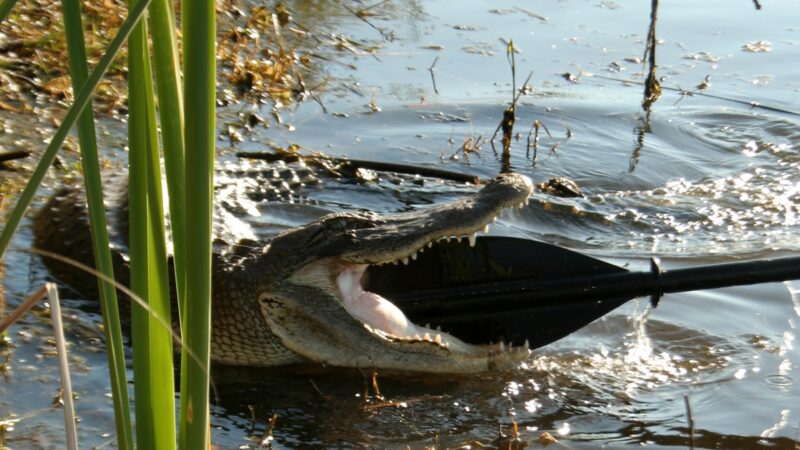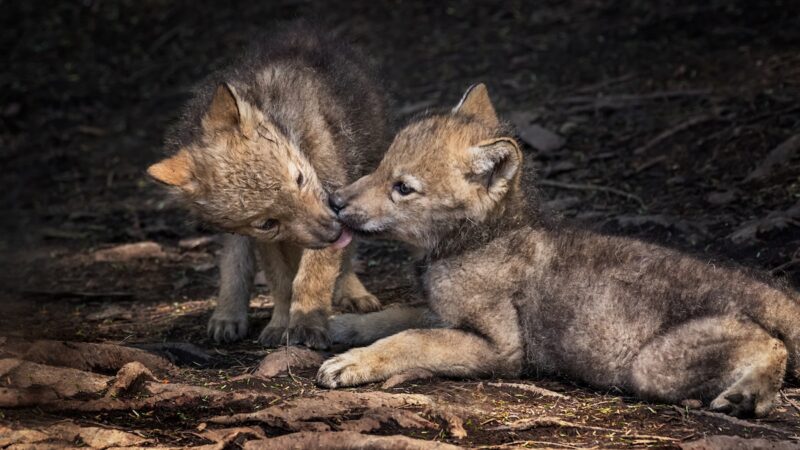10 of the Best Hiking Jackets
Choosing the right jacket for your hiking trip can be a tricky decision. Weather can be unpredictable, so choosing the most optimum layer of protection against the elements requires a little research.
Videos by Outdoors
From rain jackets to cozy fleeces, there are many styles to choose from to suit whatever adventure you have in mind.
Our top picks are the Patagonia Down Sweater, available in styles for both men and women, which offers unrivaled warmth and versatility for numerous situations. Super light and cozy, this jacket would make a great option for your next cold-weather hike.
For rainy weather, you can’t go wrong with the Arc’teryx Beta LT Hadron. An investment piece, this amazing jacket will keep you dry on the trails for years to come.
In this guide, we’re exploring a variety of the best hiking jackets available for men and women, with tips on how to choose the best features specifically for your hikes. And, we’ve got the answers to some frequently asked questions about hiking jackets.
The 10 Best Hiking Jackets for Men and Women in 2024
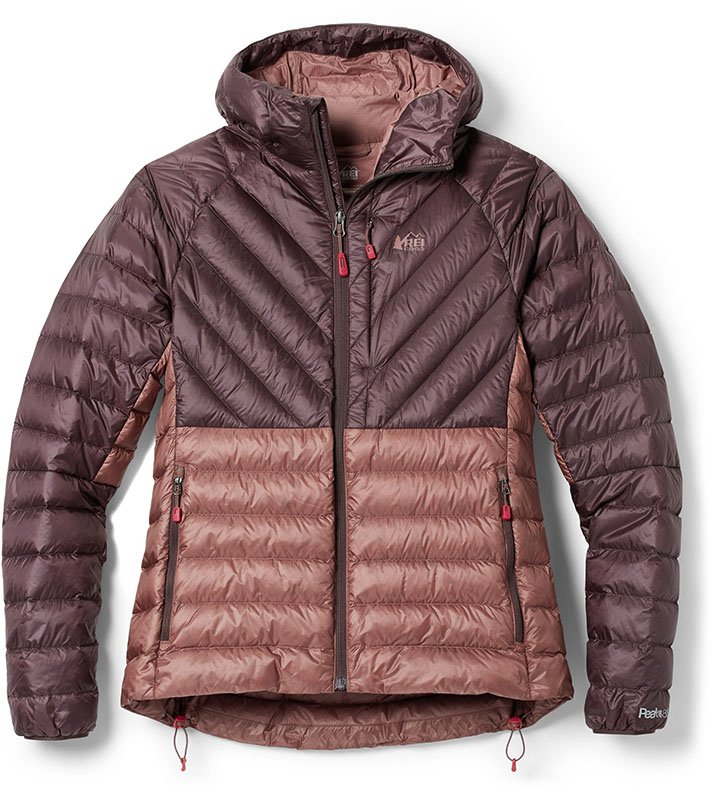
You’ll be nice and warm on the trails with this option from REI Co-op. The Magma 850 Down is a warm but lightweight, down hiking jacket that is perfect for cold weather and winter hiking.
The 850-fill power goose down with a cozy hood packs a lot of insulation power but remains breathable as you keep moving. Perfect for winter adventures, it packs into a small bag.
It has a durable water-repellent (DWR) treatment so it repels water and dries quickly. It has a strong, 100% recycled ripstop nylon shell for extra protection from rain. A zip pocket on the chest provides a handy, secure pocket for a phone.
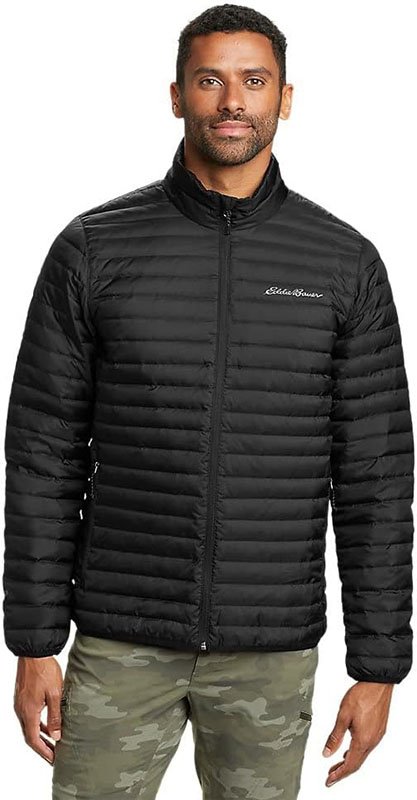
A jacket to suit all seasons, Eddie Bauer’s Microlite Down is a good choice for hiking thanks to its water protection, lightweight feel, and down insulation.
A durable, water-repellent DWR finish on the polyester shell layer sheds moisture away from the fabric. The 650-fill-down insulation provides warmth on the coldest days. There are three pockets with zips, one on the interior for extra security.
It packs down into a hand warmer pocket, and it is designed to be a universal fit, which looks great over mid-weight layers.
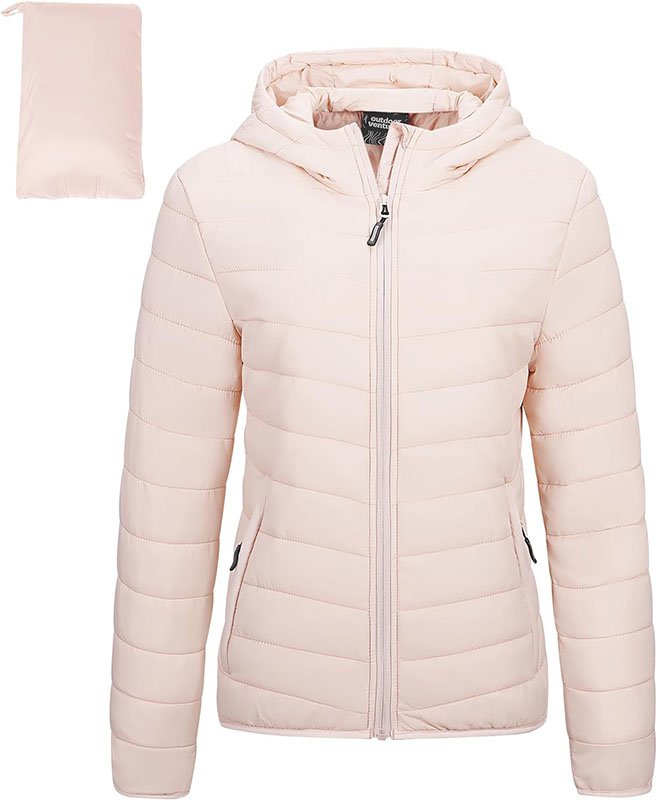
Puffy jackets with hoods that are also stylish are so handy for many of life’s scenarios. This option from Outdoor Ventures is a great choice and comes in many attractive colors.
The jacket features high-tech insulation with a water-resistant to 3,000 mm fabric, plus a flattering fit with multiple pockets, including two zippered hand pockets and an additional inner zippered pocket. The shell and lining are 100% nylon; the filling is 100% polyester.
It conveniently packs into a fold-in pocket, so you don’t need to worry about losing the pouch. It weighs 11.5 ounces when packed.
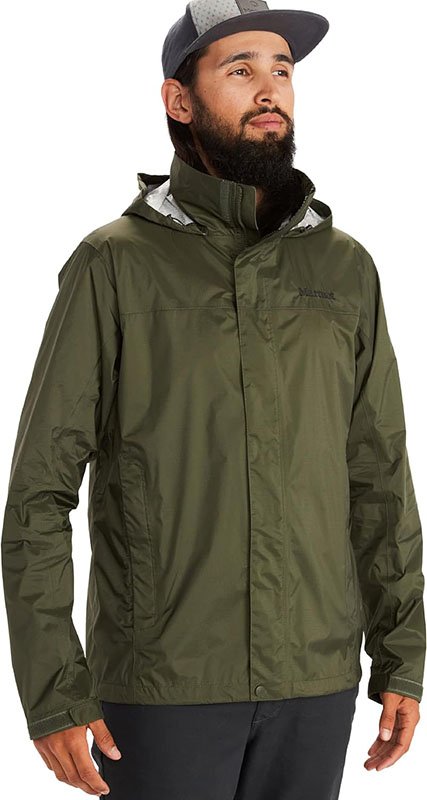
Durable and affordable, this jacket is fully wind and waterproof but also breathable. For its full price tag of $100, it’s a good value waterproof jacket.
Pit zips offer ventilation, while taped seams help to add to the waterproof protection. Packable and lightweight, this jacket has a classic fit with clean lines. The stitching and zips are high quality—typical of Marmot’s manufacturing.
Pair the jacket with a layer such as merino wool for extra warmth.
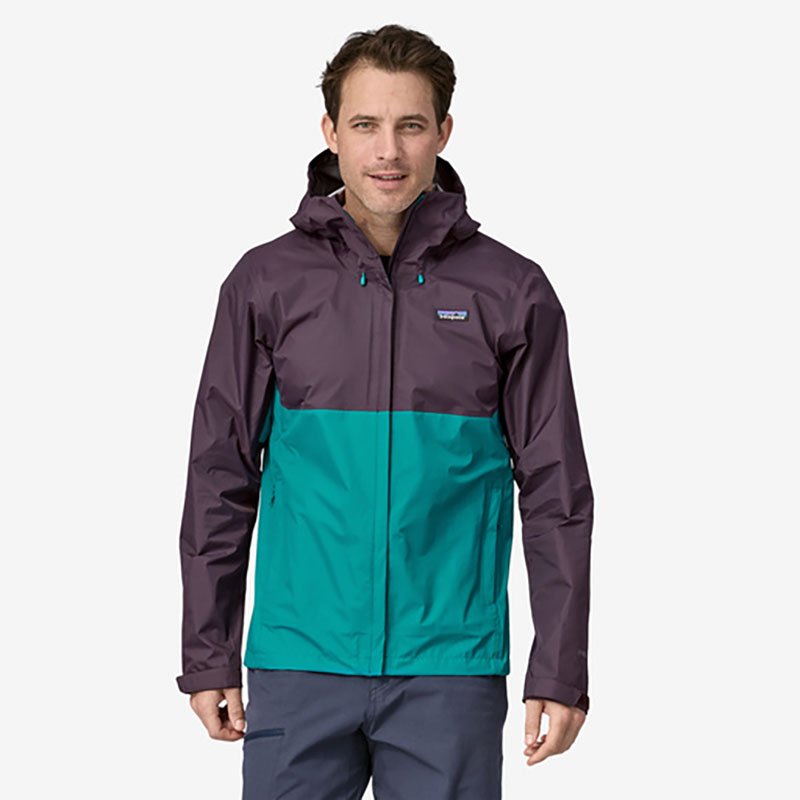
The simple, unfussy design of the Torrentshell Rain Jacket is a trusty favorite for wet weather. It will be an item you can rely on time and time again to keep you dry.
It is made from 3.5 oz, 50-denier recycled ripstop nylon/tricot, with a three-layer waterproof protection from an H2No® Performance Standard waterproof membrane.
The hood is two-way adjustable and features a visor roll-down to keep the rain off your face. The microfleece-lined neckline adds extra cozy comfort.
It also packs into its own pocket, so it can be tossed into a backpack while you’re enjoying dry weather on the trail.
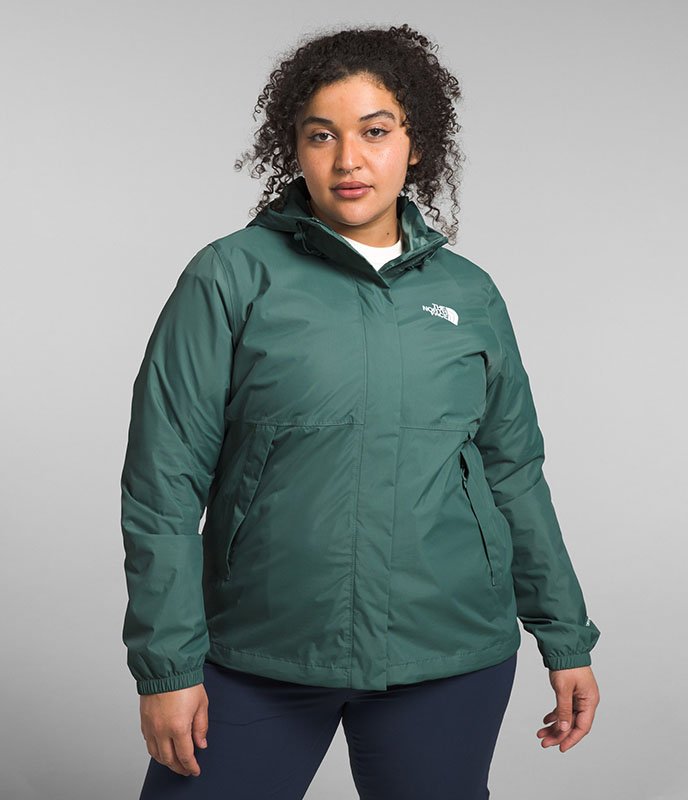
The North Face’s Antora Jacket is a great all-arounder, with extra points for its excellent weather protection and durability.
The waterproof and windproof two-layer shell fabric is made from 100% recycled fabrics, and it is treated with a DWR finish. It has two zippered hand pockets and a three-piece hood.
The style features a drop tail hem and internal drawcord for adjustability. Reviewers are very complimentary about the jacket’s protection from rain and wind, as well as its classic style and fit.
Best Rain Jacket for Women & Men: Arc’teryx Beta LT Hadron
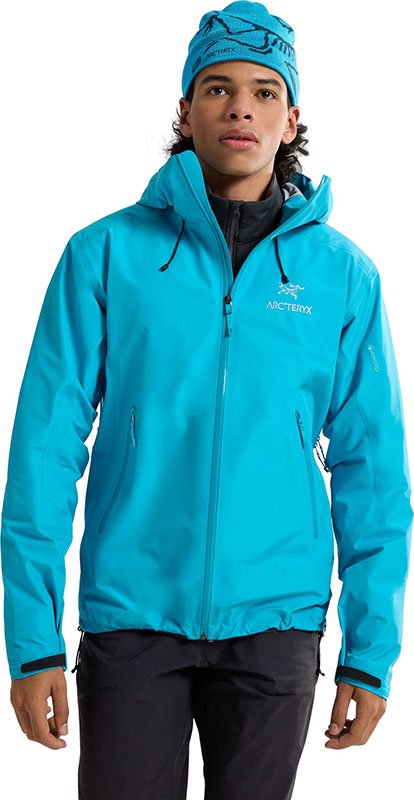
For a high-quality investment piece, the Arc’teryx Beta LT Hadron is a lightweight and breathable rain jacket, with a three-layer Gore-Tex shell. This waterproof jacket is not cheap at almost $450, but the high performance explains the price tag.
It delivers all-mountain performance for a wide range of activities, offering protection from wind and rain.
It has a helmet-compatible hood, which is fully adjustable and protects your head and face from the cold. It has underarm zippers to help regulate airflow, and watertight zippers add to the water resistance.
Reviewers loved the fit of this jacket, with a long hem adding to the stylish fit, with flexibility and ease of movement when wearing the garment. This style is also available for men.
For Women:
For Men:
Best Down Jacket for Men & Women – Patagonia Down Sweater
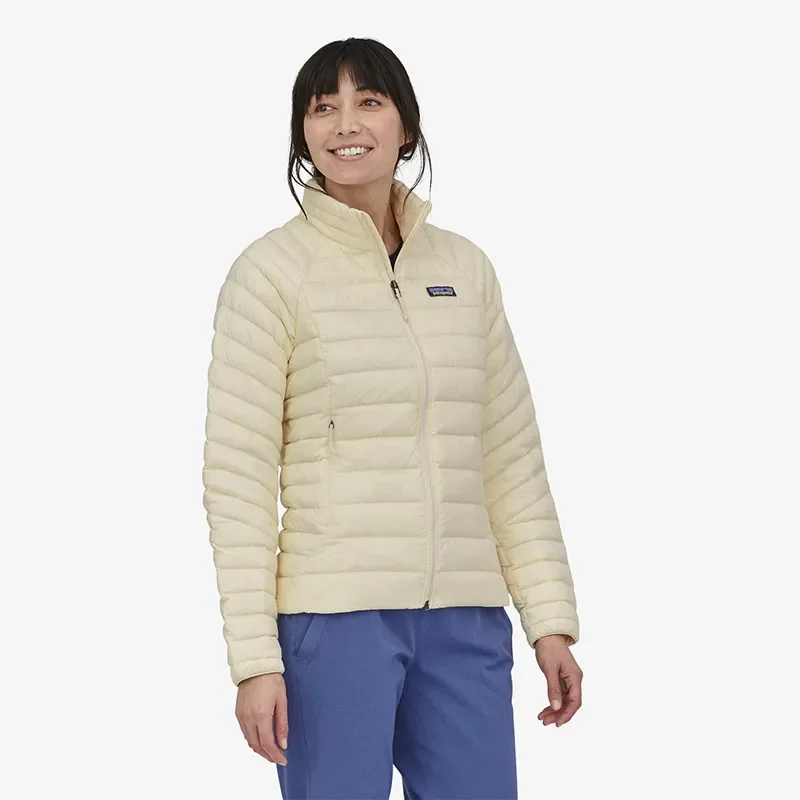
This warm and versatile jacket is a great choice for any cold-weather adventure. Patagonia’s classic quality construction and design will last the test of time.
Made from recycled ripstop, the jacket delivers strong windproof resistance. It has a water-repellent finish, in case you get caught in the rain, too. It has a soft, warm feel without looking bulky. The shape is fitted through the body, rather than rectangular, for a stylish fit.
Elastic cuffs and a cinched hem help to lock in the heat, and the down insulation is made from responsibly sourced materials with low environmental impact. Reviewers mention it might be a good idea to size up for winter hiking so you can wear layers underneath.
Buy Men’s
Buy Women’s
Best Softshell Jacket for Men & Women – The North Face Apex Bionic 3
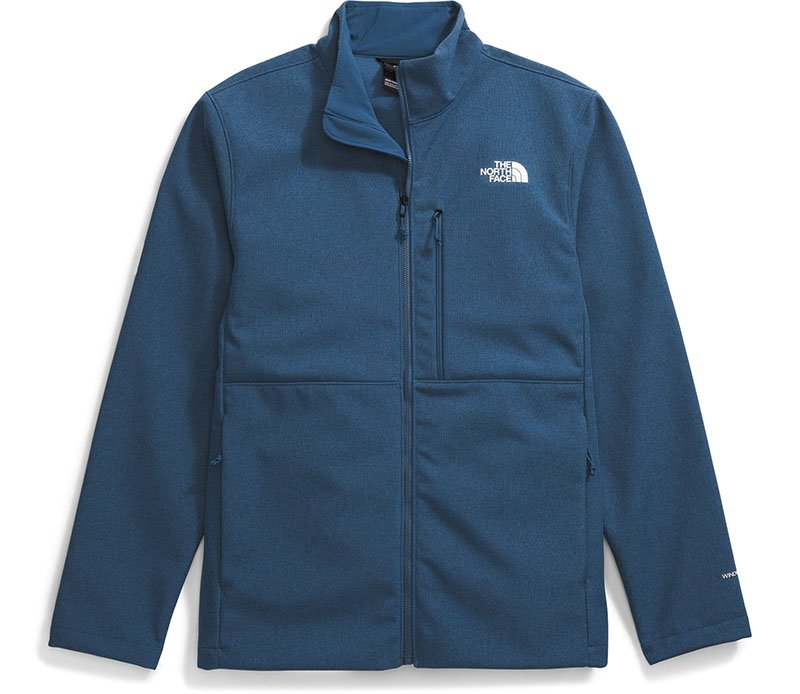
A practical option available in styles for both men and women, the Apex Bionic 3 jacket is great for offering protection from the elements. It is still breathable and comfortable to wear for hiking.
It doesn’t offer the protection from water that a rain jacket would, but this one is still water repellent, wind resistant, and has softshell stretchy fabric for comfort. It is made from highly wind-resistant WindWall™ fabric with a non-PFC durable water-repellent (DWR) finish.
It’s a stylish option that can be worn for multiple occasions, and it’s a useful mid-weight option for hiking and backpacking.
Buy Men’s
Buy Women’s
Best Fleece for Women & Men – REI Co-op Trailmade Fleece
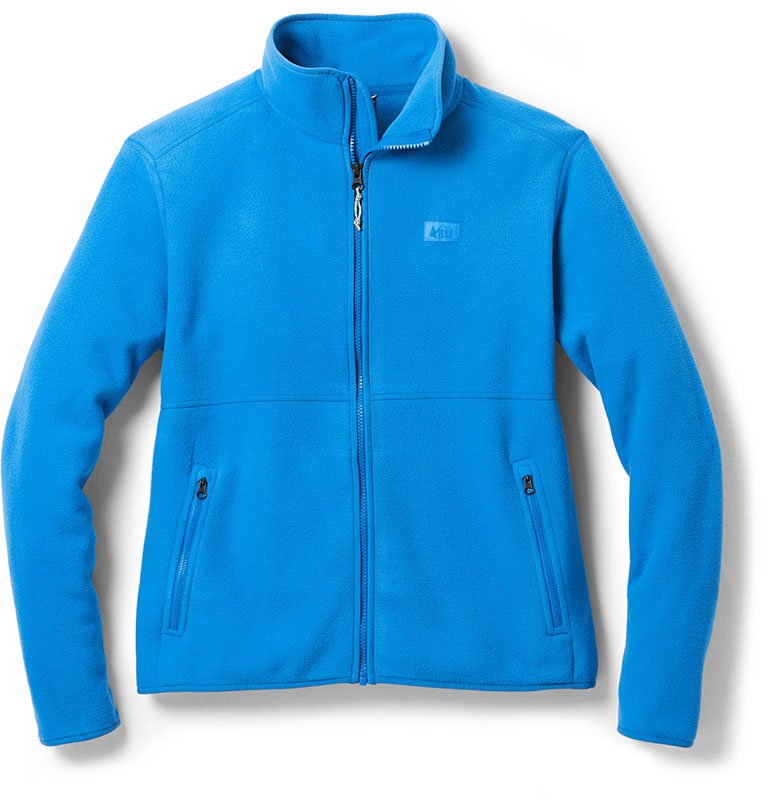
A fleece jacket can be a very useful piece of clothing for a multitude of outdoor activities. We chose this one from REI Co-op that acts as a perfect lightweight layer for cold weather and dry hikes.
This fleece will keep you cozy on its own, or use it as a layer under a rain jacket. It is made from 100% recycled polyester with Lycra spandex binding at the cuffs and hem and has two zippered hand pockets.
Reviewers love the classic fit of this fleece, which is lightweight and warm without adding unnecessary bulk.
Buy Women’s
Buy Men’s
How to Choose the Best Hiking Jacket
A good quality hiking jacket is an important purchase for any adventure. Find the best hiking jackets to suit your needs by considering the following information.
Type of Hiking Jacket
There are four main types of jacket that work well for hiking in the outdoors. These include:
- Rain jacket or hardshell jacket
- Down or insulated jacket
- Softshell jacket
- Fleece jacket
Rain Jackets
Rain jackets, sometimes called a hardshell jackets, provide a protective outer layer from wind and water. Rain jackets do not offer huge amounts of warmth or insulation, but sometimes they have a fleece lining.
You might consider wearing a fleece or merino wool base layer underneath the rain jacket for hiking.
Insulated Jackets
An insulated jacket is designed for warmth in cold weather. Look for insulated jackets with adjustable hoods, cuffs, and hems to trap in the heat. The insulation is usually made from down or synthetic down.
Softshell
Softshell jackets are very versatile and offer a great layer in mild or moderate conditions. They are not as weather-resistant as hardshell rain jackets, but they do offer a reasonable amount of protection from the elements. They are very breathable and comfortable to wear for hiking.
Fleece
A fleece jacket is super cozy to wear, but it offers no waterproof protection. It’s a useful addition for any hiker’s closet, especially as a mid-layer in dry, cold weather. Fleece is a synthetic material that is soft and lightweight.
A fleece is perfect for brisk hikes in the fall or for some additional warmth on a cool evening.
Weatherproof Resistance
If you are looking for waterproof protection, look for a jacket made from breathable materials, such as Gore-Tex or eVent. These materials help keep you dry in rain or snow while allowing moisture to escape, keeping you comfortable throughout the duration of the hike.
They will often have a water-resistant DWR coating to help you stay dry.
Insulation
The amount of warmth your jacket provides will come down to its insulation properties. Your need for insulation will depend on the climate and season that you will be hiking in. The insulation is usually made from down, a product made from the soft, fluffy clusters found under the feathers of ducks or geese. It provides exceptional warmth and is very lightweight.
Hiking jackets can also feature synthetic insulation, made from polyester fibers designed to act in a similar way to down, keeping in the warmth in cold temperatures.
Layering Compatibility
Consider whether the jacket can be easily layered over or under clothing. Layering allows you to adapt to changing weather conditions by adding or removing layers as needed.
Weight and Packability
If you plan on carrying the jacket in your backpack, choose a lightweight and packable option that fits into a pocket or a separate small bag. A pocket is preferable so you don’t have to worry about losing the additional bag.
This is especially important for long hikes, or if you might encounter varying weather conditions along the way. If the jacket is packable, check its packed weight. For a lightweight jacket, you should look for one between 7 and 12 ounces when packed.
Fit and Style
Always look for a jacket that has a good design and allows for a full range of motion. Consider features such as a longer hemline or a fitted body shape to achieve a more flattering fit. It’s important to try on a few styles to find what jacket types suit your shape best.
Your jacket should offer some versatility, especially if you are looking for an investment piece that will be worn for other occasions.
If you are planning to layer the jacket, be sure that the sizing will be suitable as a mid-layer or an outer layer. Sometimes it will be necessary to size up or down to fit your exact needs.
Hoods and Collars
A well-designed hood that fits securely around your head can provide added protection against wind and rain. Some hoods are helmet-compatible, which is useful for activities like climbing, or some rain jackets might include a hood with a visor to keep the rain off your face.
A high collar is another useful feature, which helps to keep you warm and dry.
Ventilation
Jackets with armpit zips or other ventilation features help to regulate body temperature and increase airflow, allowing heat to escape during strenuous activities.
Durability
Check the durability of the jacket’s materials, especially in areas prone to wear and tear. Materials such as nylon, polyester, Gore-Tex, and ripstop fabrics are abrasion-resistant, as well as weather-resistant.
Look for a combination of these materials and also check for reinforcements in high-use areas that can extend the life of the jacket, such as elbow patches, shoulders, and cuffs.
Pockets and Storage
Consider the number and placement of pockets. Look for jackets with pockets positioned for easy access even when wearing a backpack. Some jackets also have interior pockets or chest pockets for storing secure items, including your phone and keys.
Fleece-lined pockets are a great addition for extra warmth.
Additional Features
If you plan on hiking in remote areas or low-light conditions, reflective elements on your jacket can enhance visibility and safety. If you want to be spotted easily on the trails, you could also consider purchasing a jacket in an eye-catching color or pattern, too.
Budget
The price of a jacket will depend on several factors, and the budget you set for a jacket will vary depending on several factors as well, including your hiking preferences and the kinds of jackets you might already own. Set a budget and find a jacket that meets your needs within that range.
There are quality options available at various price points, and you can usually find good deals on hiking jackets online. Look out for sales and discounts at stores such as Amazon or BackCountry.
The jackets on this list vary from $55 to $450.
Reputable Brands and User Reviews
You can’t go too far wrong with respected outdoor clothing brands, such as Patagonia, Eddie Bauer, and The North Face. Brands such as Marmot offer great hiking jackets at a reasonable price.
If in doubt, always read user reviews when you are shopping online. It is a great way to find out information about the product, including how long it lasts over time. Important details about the fit and sizing will also help you to make a decision.
You can also purchase in-store, which is a good way to try on a garment and check the fit and style. You might also take the chance to check out some features, such as stitching, fabric quality, and lining. Go to REI Co-Op or Dick’s Sporting Goods to shop their range of hiking jackets in-store.
Frequently Asked Questions
Here are the answers to some frequently asked questions about hiking jackets.
Is there a difference between waterproof, windproof, and water-resistant jackets?
Yes, there is a difference. Waterproof jackets are designed to keep you dry even in heavy rain, while water-resistant jackets can repel water to some extent but may not provide sufficient protection in prolonged or intense rain.
If you spot a jacket that is windproof only, it is likely to not have any water-resistant coatings or provide you with much protection against rain. It will offer a sheet of protection against windy conditions only.
What is the difference between a hardshell and a softshell jacket?
Hardshell jackets are typically waterproof and windproof, ideal for harsh weather conditions. Softshell jackets are more breathable and flexible, suitable for milder weather or high-intensity activities where breathability is crucial.
Which type of insulation is best?
The two main types of insulation are down and synthetic down.
Down insulation is lightweight and provides excellent warmth, but it can lose its insulating properties when wet. Synthetic insulation retains warmth when wet and dries faster, but it might not provide the same level of warmth as down. However, synthetic down may make a better choice in damp conditions.
How do I clean and maintain my hiking jacket?
Always follow the manufacturer’s care instructions. Many hiking jackets can be machine-washed with a gentle detergent, but it is usually advisable to avoid fabric softeners. You can also wipe clean the outer layer of the jacket to keep it looking new.
Can I use my hiking jacket for activities other than hiking?
Yes, many hiking jackets, such as the Patagonia Down Sweater and The North Face Apex Bionic offer styles that suit multiple occasions. These jackets are great for hiking, but both offer timeless designs that can be worn day or night, making them versatile additions to your closet.
What is the difference between a two-layer and a three-layer jacket?
You might notice some jackets are labeled as two-layer or three-layer jackets. The layers refer to the construction of the jacket. The shell layer refers to the outermost layer of the jacket.
A two-layer jacket has a waterproof and breathable membrane bonded to the outer fabric, while a three-layer jacket adds a protective layer on the inside, enhancing durability and comfort.
Final Thoughts
A good hiking jacket is an essential item for any outdoor enthusiast. A jacket is one of the focal points of an entire outfit. Worn for long periods of time and in several situations, it’s important to find a stylish and practical option. In fact, you might need a few different hiking jackets to suit various hiking conditions.
There are plenty of options available in a range of budgets and styles. Whether you’re planning on day hikes or a longer backpacking trip, there’s a jacket out there to suit your needs. Consider the materials, style, and packability factors before you make the purchase.
Try on a few styles if possible in order to see what jackets suit you best. It’s also worth researching the durability of the materials if you are looking for a hiking jacket to last a few adventures.


